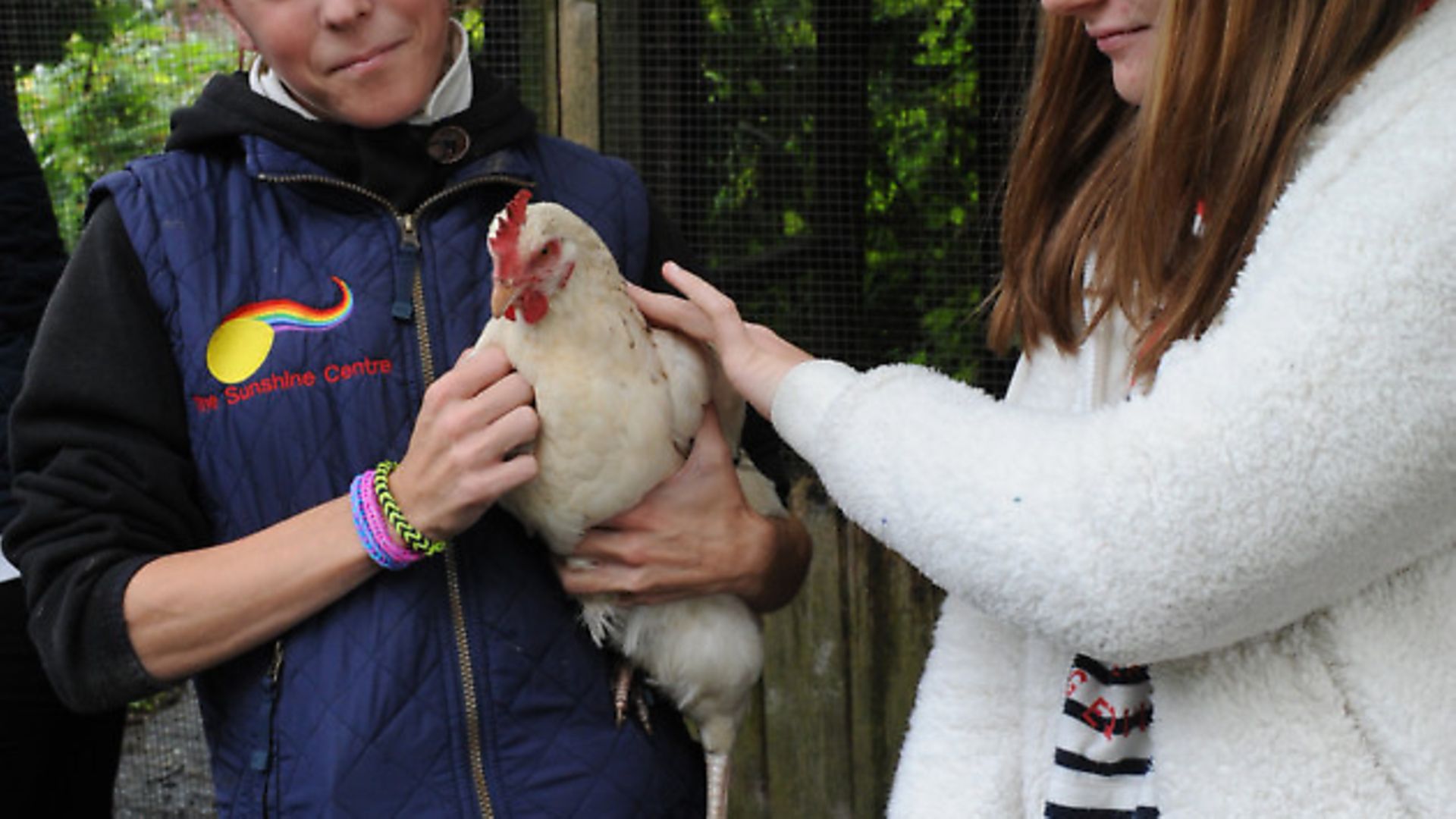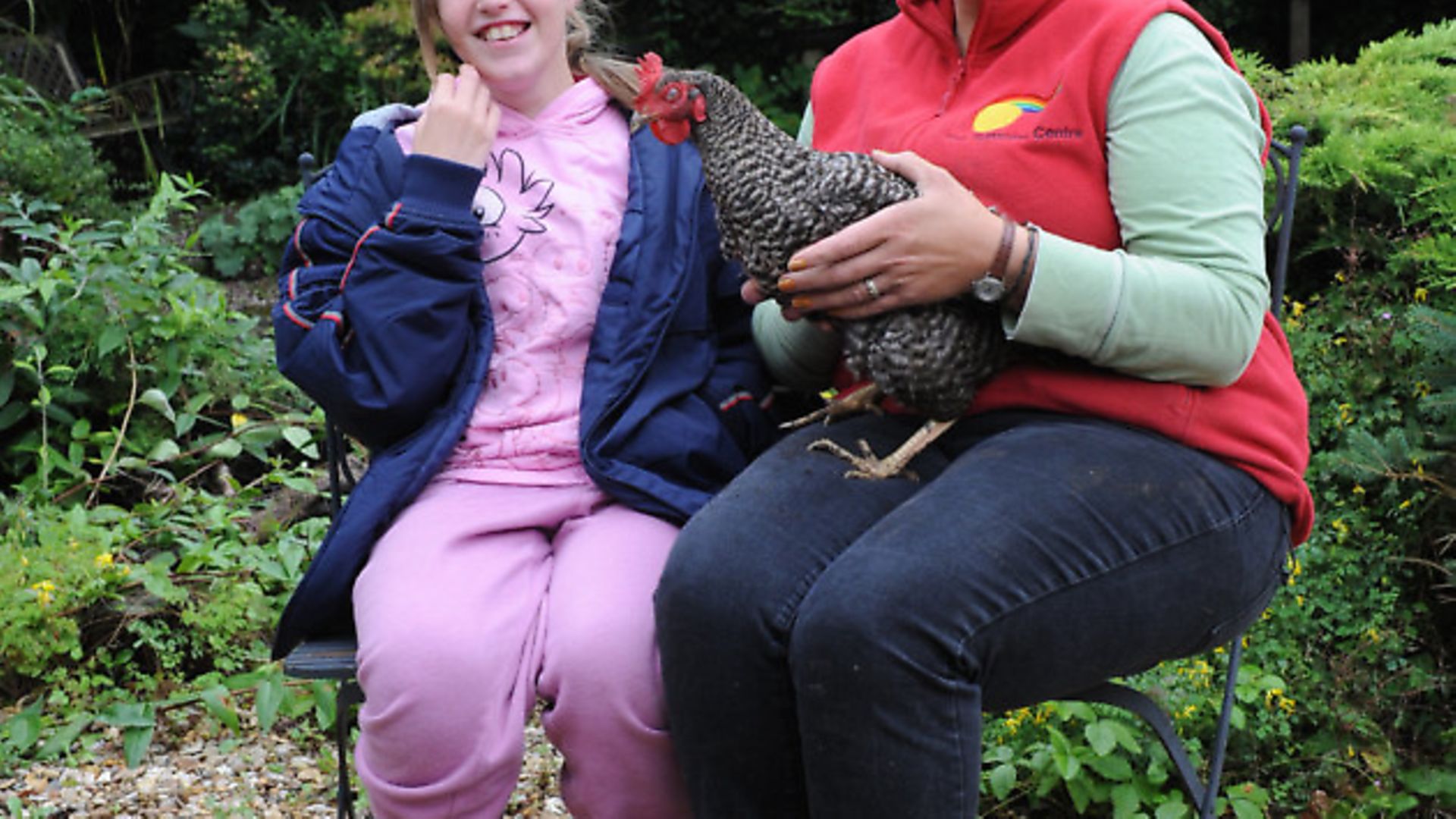Bring me Sunshine: Rob Morris visits a centre where chickens provide vital help to those with disabilities

Chickens are playing a vital role at a special centre in Norfolk which helps those with autism and other disabilities.
The Sunshine Centre, at Downham Market, offers the opportunity for the disabled to interact with the birds – as well as horses, cats, guinea pigs and fish!
The centre is the brainchild of Mel Tomlinson and, although she gets some financial support, she also uses her own funds to run the project.
The idea is to help the participants, ranging in age from 4 to 68, to gain more skill and confidence by working with the animals – and there are often remarkable successes.
There are currently six hens and a cockerel at the centre. As well as playing a role with the participants, they of course produce eggs and will be used for breeding.
The centre also runs ASDAN courses in animal care. These are nationally recognised courses which are both vocational and also qualify for university points. The courses aim help to develop vital life skills while making learning relevant and transferable to other activities.
It is the the only centre in the Eastern Region that is qualified to use the Horse Boy method, a way of using horses to help those with autism. The method was developed in the United States by a father who realised how interaction with horses helped his autistic son.
Mel said: “It’s important that the participants have as much variety in the animals they have around them as possible. The animals each have their own personalities. Hens can be quite ‘flighty’ and some don’t like to be handled, so that also helps the participants relate to them in different ways, depending on the animal’s needs.”

The variety of animals at the centre means that participants are able to get a variety of experiences but the chickens are definitely a favourite. They participants learn how to handle them safely, feed them and generally check their health.
With autism, as with other disabilities, progress is often very slow. Just getting the participants to go near and then touch a hen is difficult, but this makes it even more rewarding when one connects with the hens. Seeing a chick emerge from an egg is, of course, particularly rewarding.
Charlotte, one of the participants, although very shy and reserved when asked about the hens, said: “They give eggs and we feed them corn and layer pellets.” It was only a small statement, but still she was willing to say this to a me, a strange man, who she had just met, and was also prepared to be photographed.
There is practical help from parents, and especially from Lisa Bannister, who volunteers there whenever needed. A horse owner herself, Lisa is able to help with all the animals and her confidence also seems to help the participants relate to the animals.
Lisa said: “It’s great here with all the different participants on different days. I do like the chickens, and the eggs from them are so different from those in the shops. It’s always friendly here, and I learn a lot.”
Mel said: “The hens we have at the moment are a mix of Light Sussex and Scots Dumpies, with the cockerel, also a Scots Dumpy, appropriately named Hamish.
“Its hard work running the centre and, like all small organisations, the lack of funding means everything is done on a shoestring. Luckily, I get a lot of moral support and we run events during the summer to help fund the sessions and courses.
“I would love to be able to do more days and increase the size of the flock, but it’s also a balance of keeping it small and giving the participants a feeling of safety and increasing the size and being able to offer it to more people.
“The hens are a crucial part of the centre and I would never be without them. It is an ideal way to introduce the participants to life’s circle and handling and caring for animals which translate into how they treat other people.”
It was wonderful to visit this small centre and see some of the participants and how they relate to the hens and other animals. It also shows how one woman’s commitment to helping those with autism and other disabilities can make such an impact. It is also about how we all relate to animals – and how they can touch the emotions in us all.
Image(s) provided by:
Archant
Archant







